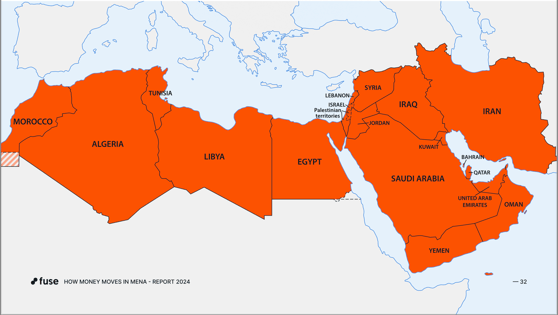From Oil to Tech
Top 5 Trends Shaping MENA's Financial Landscape
7/31/20243 min read


The financial landscape in the Middle East and North Africa (MENA) region is undergoing a significant transformation driven by economic diversification, technological innovation, and regulatory changes. Here are the top five trends that are shaping the MENA region:
1. Digital Transformation and Fintech Growth
The MENA region is experiencing a fintech boom, with significant investments in digital banking, payment solutions, and financial technologies. Countries like the UAE, Saudi Arabia, and Egypt lead the way with supportive regulatory frameworks and government initiatives.
Examples:
UAE: The UAE has become a global fintech hub, with over 1,000 Fintech startups and significant government support through initiatives like the FinTech Office.
Saudi Arabia: Under Vision 2030, Saudi Arabia aims to become a cashless society by 2030, with the launch of platforms like SARIE for instant payments.
2. Regulatory Advancements
Regulators across the MENA region are adopting more progressive policies to foster innovation and ensure financial stability. This includes the introduction of regulatory sandboxes, digital banking licenses, and fintech-specific regulations.
Examples:
Egypt: The introduction of the Banking Law in 2020 and the Non-Banking Fintech Law in 2022 has paved the way for digital banks and e-payments
Saudi Arabia: The Saudi Central Bank (SAMA) has established a regulatory sandbox to encourage local and international fintech companies to test innovative products.
3. Mobile and Digital Wallet Adoption
There is a growing adoption of mobile and digital wallet solutions in the MENA region, driven by a young, tech-savvy population and increasing smartphone penetration. These solutions transform how people transact, save, and manage their finances.
Examples:
Egypt: Nearly 90% of consumers have used at least one emerging payment method in the past year, indicating a significant shift towards digital wallets.
Morocco: In 2022, 75% of the population used at least one digital payment method.
4. Cross-Border Payment Systems
The development of cross-border payment systems is enhancing financial connectivity within the MENA region and beyond. These systems facilitate smoother, faster, and cheaper transactions across countries, benefiting both businesses and consumers.
Examples:
Buna: The Buna payment platform is a multi-currency cross-border payment system that enables real-time payments among MENA countries.
AFAQ: The Arabian Gulf System for Financial Automated Quick Payment Transfer allows fund transfers between MENA nations without using the SWIFT network, reducing costs and delays.
5. Financial Inclusion Initiatives
Efforts to increase financial inclusion are gaining momentum in the MENA region. These initiatives aim to bring unbanked and underbanked populations into the formal financial system, which is crucial for economic development and poverty reduction.
Examples:
Egypt: The government has actively promoted financial inclusion through frameworks that support digital banks and e-payments, targeting the large unbanked population.
Morocco: Various programs and policies are being implemented to enhance financial literacy and access to financial services, particularly in rural areas.
Conclusion
The Middle East and North Africa (MENA) region is experiencing significant economic growth, making it an attractive area for global businesses. While entering the Middle East market may pose challenges, it is open for business. Understanding the unique differences between each country, including their economies and cultures, is crucial for expansion.
MENA is redefining its position in the global economy. It is shifting away from its traditional focus on oil and gas to become a hub for financial innovation and growth.
The region is witnessing new payment systems, changes in financial regulations, and the development of political alliances and trade agreements, making it increasingly relevant and appealing on the global stage.
If you would like more insight, please don't hesitate to contact us at 40 Consulting.


CONTACT US
contact@quarenta.se


